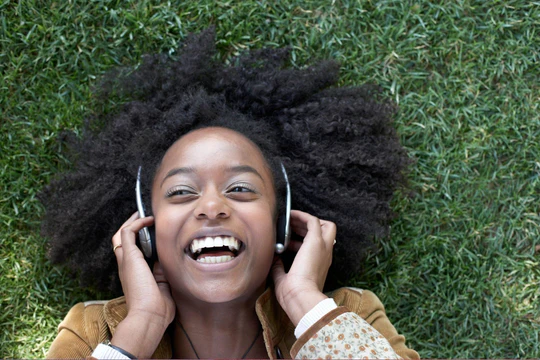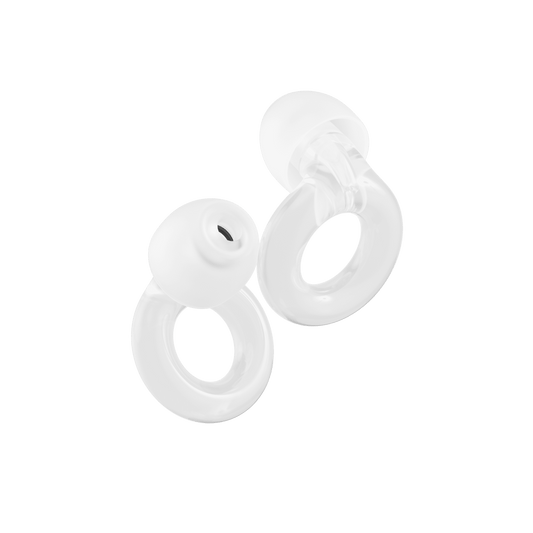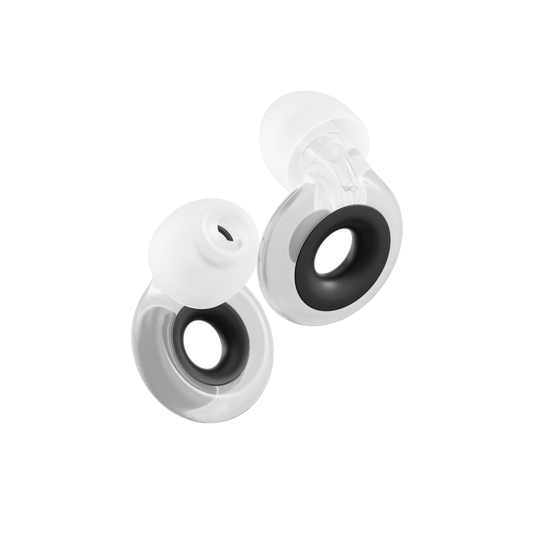Key takeaways
- Hearing damage is really common – and your hearing may be damaged before you notice any symptoms of hearing damage
- An online hearing test can help you to understand if you have any issues with your hearing, before you make an appointment with a professional audiologist
- They’re free, easy and convenient and can help with early detection of hearing damage or hearing loss
- However, they shouldn’t replace hearing assessments and treatment from a professional
Hearing damage can take less than you think. Any exposure to sounds at 85 decibels or above can cause damage, depending on how long you’re in close contact with the sound for. And considering that a noisy restaurant is around 88 decibels, you might end up over that decibel limit faster than you think.
This online hearing test helps you determine whether you could benefit from an extensive professional evaluation of your rhearing, carried out by an audiologist or hearing care professional.

Why testing your hearing is so important
Regular hearing tests can help you to identify hearing loss at an early stage. Even if you think your hearing is fine, there’s the potential that hearing damage has already kicked in and you just don’t know it yet.
Many people don’t realize they have a hearing problem until it becomes a real issue for them in their daily lives, affecting how they communicate with others and their enjoyment of everyday activities.
Through free hearing testing online, you can identify whether you might have any hearing issues – and if you do, you can book an appointment with a specialist. They’ll be able to advise you on the best treatment and management to prevent further deterioration of your hearing and improve your overall quality of life.
Hearing loss can also be a symptom of certain medical conditions. So, if you’re struggling to hear friends and family when they speak, need to turn the television up, or often have a ringing in your ears, it could be indicative of underlying health issues. Testing your hearing with a professional will help you to narrow down the cause of your hearing damage and, again, help them to determine the best course of action for you.
Benefits of online hearing tests
Online hearing loss tests make it really easy to test whether you have hearing loss.
You can take the test from the comfort of your own home, whenever it’s convenient for you. It’s quick and easy and while it doesn’t replace advice from an audiologist, it’s a great starting point to find out more about your hearing, and whether you have any problems.
Less intimidating
Some people might find it intimidating to go to their audiologist about hearing problems. Taking a free online hearing test could be a good first step if you’re nervous about seeing a professional about your hearing damage. It can give you the time to process the results in private, and arm you with information to take to your audiologist.
Early detection
Sometimes, hearing problems can sneak up on you before you even realize you have a problem. If you regularly attend loud concerts, work in a noisy environment, or are otherwise often exposed to loud noises, it’s a good idea to regularly check your hearing so you can spot any issues before they become a major problem.
Taking an ear test online offers a quick, easy and free way to regularly test your hearing, meaning you can catch any issues early. The sooner you get professional help for your hearing damage, the better the outcome is likely to be.
Cost effective
Taking a traditional hearing test conducted by a healthcare professional can be expensive. If you’re unsure whether you have hearing damage, you might not want to splash out for a hearing test – taking a free online test can help you to understand whether there are any issues before you invest in specialist healthcare.
How online hearing tests work
Our hearing loss test is really simple to use. Simply answer a few questions in the quiz below! You’ll then be able to tell whether there’s anything you need to be worried about when it comes to your hearing.
Okay, ready? Go!
How did you get on?
If you scored well, congratulations! Your ears are okay, for now. Remember to keep wearing hearing protection like earplugs or earmuffs when you’re in noisy environments.
And if you didn’t score so well, it’s time to see a doctor or audiologist.
What was that hearing test all about?
You know what decibels are, right? They tell us how loud a sound is – and sounds over 85 decibels have the potential to damage your hearing.
Hertz, on the other hand, is about the frequency of the sound waves. It indicates whether a sound has a high or low tone. The average person can hear sound ranging from 20 hertz per second to 20,000 hertz, but as we get older, our ears aren’t able to hear high pitched sounds as well. Listening to high pitched sounds can be damaging to your ears, just like exposure to loud noises.
So if you weren’t able to hear the high pitched sound in the video for a long time, it could indicate that there’s some damage to your hearing, whatever the cause.
Keep your ears healthy
Whether you’re concerned about your hearing, or you’re conscious that your ear health is important and want to stay on top of things, an online hearing test is never a bad idea. Just remember that they don’t replace hearing assessments by an audiologist, so if you have any serious concerns, book an appointment with a professional ASAP!
10M+ happy customers
Our earplugs

Hearing Damage: Dangerous Decibels In Your Daily Life?
Discover how many decibels can cause hearing loss and learn how to protect your hearing in our informative article.

The Power of Sound: What Is A Decibel And How Is It Measured?
Unlock the secrets of sound and learn what a decibel is. Explore more measuring sound and its impact on our world

Why People Love Loud Music
It’s Friday, 9 PM, and the night is just getting started. You’re ready to enjoy some dancing with your friends. You w...


















